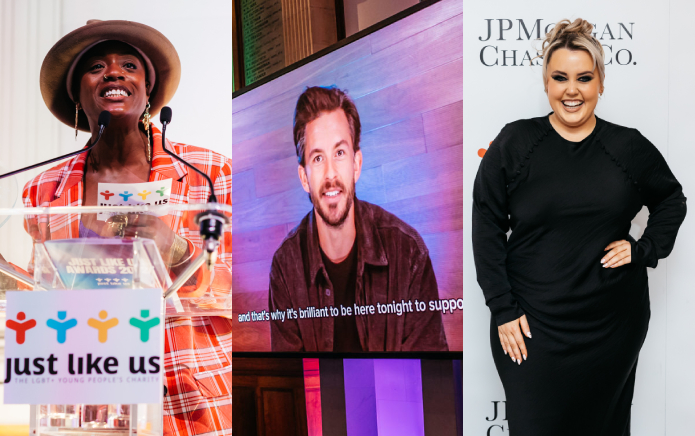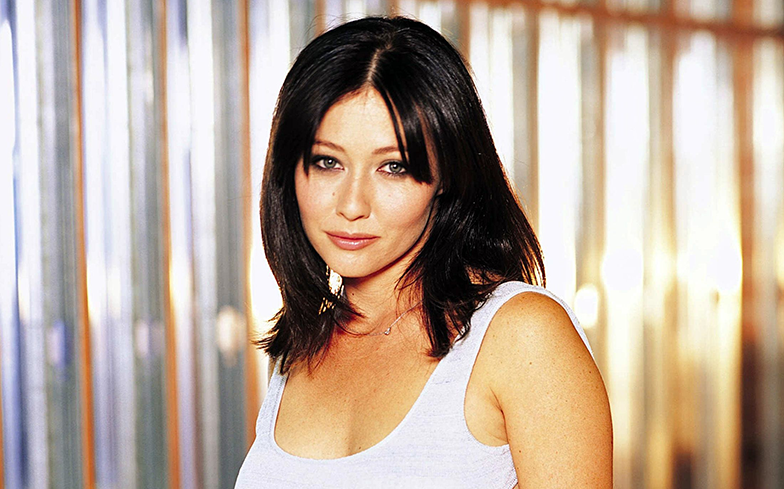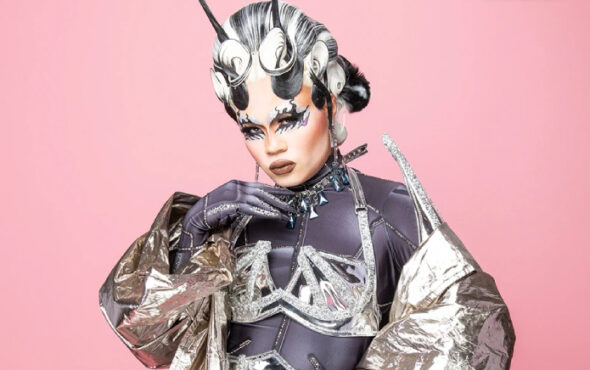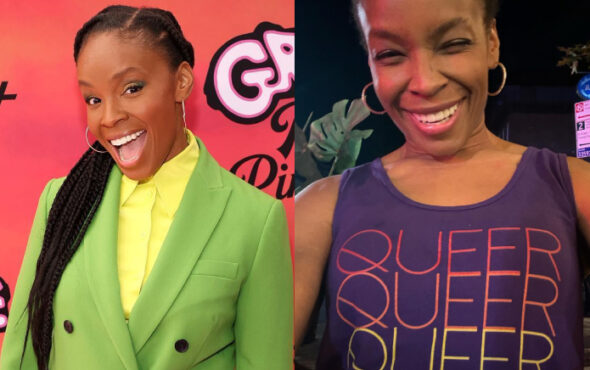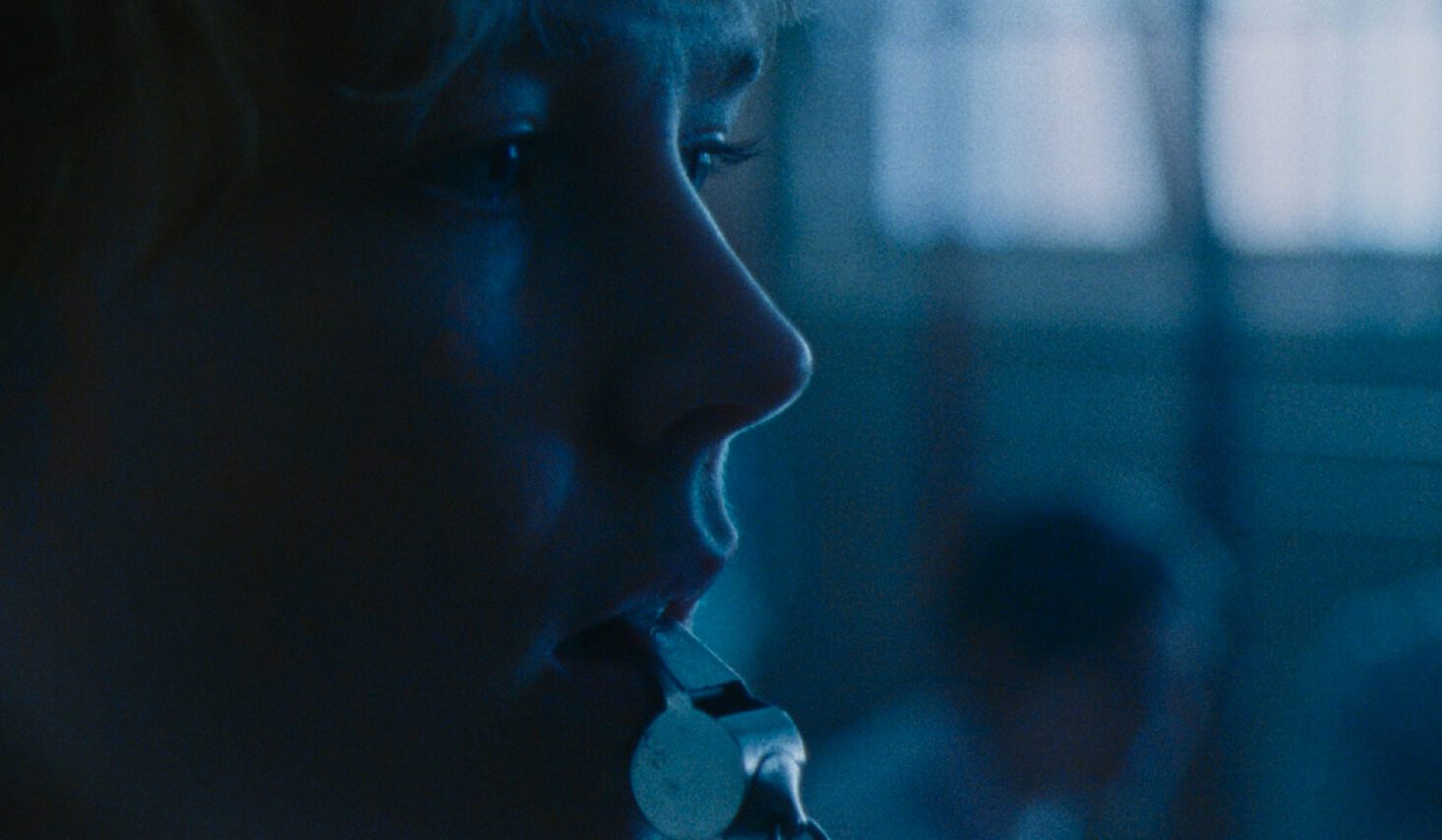
Growing up as an LGBTQ+ young person in Britain today, it can be easy to take certain things for granted, to forget that some steps towards LGBTQ+ liberation were in the very recent past.
Section 28 was a UK law which was passed in 1988, and which remained in place until 2003. It stopped councils and schools “promoting the teaching of the acceptability of homosexuality as a pretended family relationship.” Overnight, the law effectively legitimised the shame, stigma and bullying towards LGBTQ+ pupils in schools.
It also left LGBTQ+ teachers isolated, afraid for their jobs and unable to defend their pupils against abuse.
Blue Jean tackles this subject matter with grace and poignance. It is not only visually stunning but so concise in what it discusses. We explore the everyday reality of Jean, a lesbian PE teacher who strives to maintain the divide between her work and personal life as the two start to bleed together.
Jean is under surveillance, her anxiety is palpable and we feel her dread when a neighbour looks through a window or a family member asks an intrusive question. There’s a scene where Jean stares silently in the staff room as the other teachers applaud Section 28 for “protecting vulnerable minds”. It can be easy to underestimate the pain that comments like this cause.
Jean’s story is juxtaposed with Lois’, one of her students, and her struggle with bullying. The film portrays the homophobia of her young classmates in a way that really hit home for me – the way the laughing girls hold towels up to cover their bodies from Lois in the changing room, unfortunately brought back memories.
Blue Jean’s writer-director Georgia Oakley said of the research phase of the film: “[It] was four years of talking to people, including women who had been directly affected as lesbian PE teachers at the time. We spoke to as many people as we could, and we then started to sort of hone in on a handful of first-hand accounts from women who had endured the same struggle as Jean.”
The detail and intimacy you can feel in the film definitely comes down to the fact that it was woven from real stories. Sometimes when talking about representation we can get hung up on the idea that every piece of media telling a story like this has to come from someone who has lived that experience.
But taking the time to talk to these people before building the story creates a rich and authentic film.
I volunteer for a charity called Just Like Us, the LGBTQ+ young people’s charity, and part of my role is speaking in schools. I regularly tell more than 200 school pupils on a Wednesday morning that being LGBTQ+ is normal, valid and joyous!
We do a question and answer segment, and young people often seem totally unafraid to ask questions that range from how to support a friend who recently came out, to dealing with unsupportive family members, all the way to the humorous: “Can dogs be gay?”
I feel so deeply lucky that I’m able to be a part of spreading positive LGBTQ+ messages in schools, when just 20 years ago that would have been illegal. I will think of Jean and the women she represents during my next talk, and the many more to come.
In Blue Jean, Jean tells her girlfriend during one exchange: “Not everything is political.” Her girlfriend responds: “Of course it is.”
For LGBTQ+ people, sometimes the act of simply existing is made political by others, and it often feels as though our identities are up for debate, even now.
There are a lot of young LGBTQ+ people in my generation who don’t want to watch any more LGBTQ+ pain, and I can understand that. But sometimes a painful story is worth telling. Rights that have been given can be taken away, and it’s crucial to know about, respect and remember the struggles of those who came before us.
Amy Chiswell is an ambassador for Just Like Us, the LGBT+ young people’s charity. If you’re LGBT+, age 18-25 and living in the UK, you can volunteer for the Ambassador Programme here.
